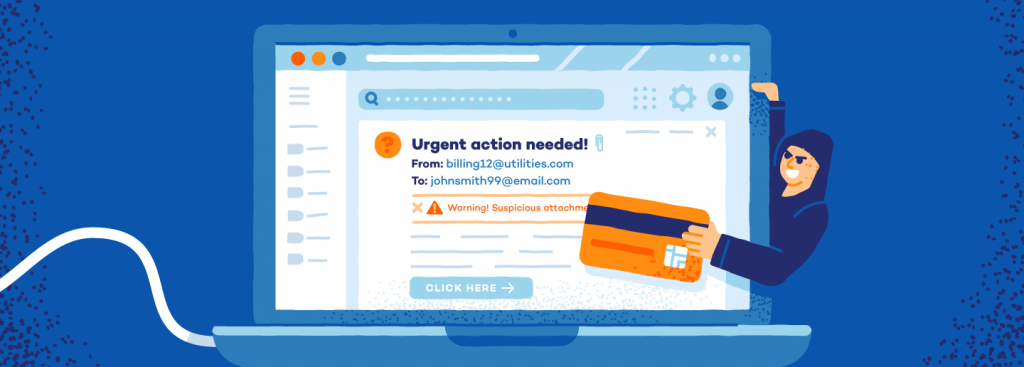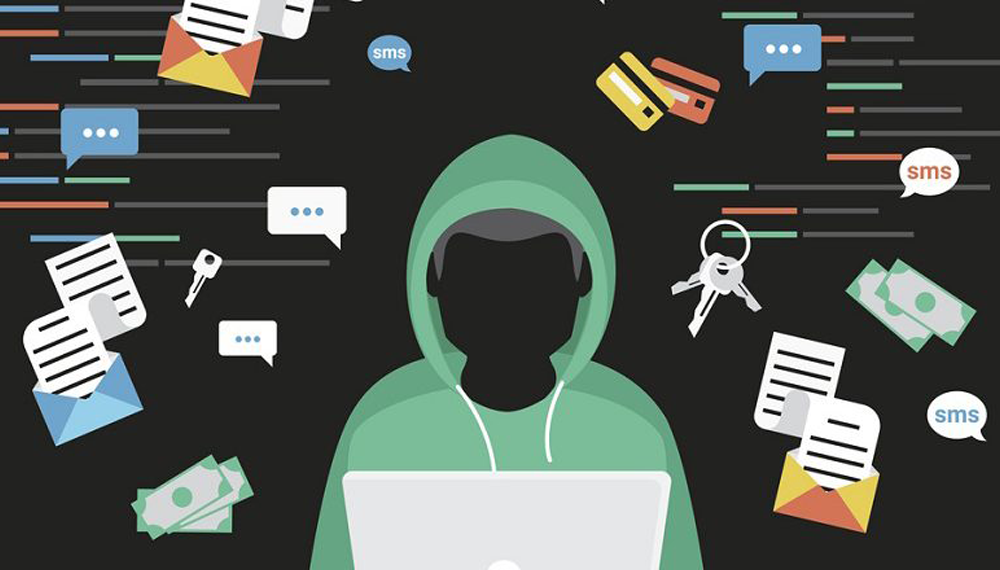Isn’t it great we don’t have to print out MapQuest directions anymore? Or what about being able to book a restaurant reservation right from your couch? The expansion of the internet and rise of smartphones has made our lives easier, made us more mobile but also more vulnerable. Whether it’s the aforementioned MapQuest ritual being now defunct or the growth of the largest e-retailer in Amazon, the internet has changed our lives in so many different directions. But like anything in life, there is always a nasty underbelly to the great things we experience.
If you are an active user on the Internet, you have likely been spoofed once, twice or maybe every day! The act of spoofing can cloak itself in many different ways. Email, Caller ID and GPS spoofing are some of the main ones that are floating out there. Within the context of Internet security, spoofing is when a scammer disguises themselves as a trusted source in order to gain access to important data you may have stored away on your computer. For example, you receive an email from the IRS stating you owe a hefty tax bill and it’s asking you to enter your banking information to resolve this outstanding bill. A lot of people will immediately click an attached URL or even worse, begin to enter their banking information. Hackers with malicious intent will often conjure emails that look very similar to real emails you would receive from a trusted sender. The colors, logos and contents of the message will look 100% legit. Caller ID spoofing has become equally (if not more) prevalent these days. Don’t you hate when you answer a phone call, expecting it to be someone fun or maybe even an important call you’ve been waiting on but turns out to be the dreaded phone call about your cars extended warranty. Ugh!

These attempts to fool people into giving up important information can cause a myriad of issues. According to an article on CNBC.com, Americans collectively lost 30 billion dollars in just the last year to phone spoofing! That number may seem staggering but will only rise. But there’s more! according to the FBI, over 12.5 billion dollars has been lost worldwide to email spoofing as well. The numbers are staggering and shows anyone can be a victim to these types of attacks.
So far, we have surmised the current world is a terrible place to exist but how do we fix it? Phone Spoofing is a little more straight forward. Limit how often you give out your phone number, this will cut down the possibilities of your phone number ending up in the wrong hands without your knowledge. If you receive an unknown phone call let it go to voicemail, don’t even answer it. Reputable callers will/should leave a voicemail to identify themselves upon no answer. Last step and also the most important step is to just block spam callers. If you happen to answer the call and it’s a spam recording or someone, you’re unfamiliar with, immediately hang up and block that phone number. Pretty easy right? I agree. But where things get tricky is email spoofing, which many of us experience. Here at Next Generation Designs, we have had clients get bombarded with 1000s upon 1000s of emails that are essentially just spam with malicious intent. Generally speaking, email providers usually have systems in-place that do a good job of sniffing out these fakes and immediately sends them to the Spam Folder. But what happens if one gets into your main Inbox? How does one know whether its fake or not? What if I accidentally click on the link and my computer freezes up? Because this can be a lengthy, arduous topic we will simplify what to look for in a typical spoofed email.
- Incorrect Spelling
- Asking for sensitive information
- Logos, layouts and contents of message look eerily similar to a known sender (Amazon, Walmart, Credit Card Company)
- Email will make unrealistic threats or demands
Sometimes even the most cautious person can fall victim to hackers via E-mail & Phone. Unfortunately, sometimes it can come out of nowhere! Have you ever found yourself browsing the web and all of a sudden, your entire screen freezes? And a message flash across your screen asking for information to fix your now frozen computer? Those are also attempts to steal information in a more brute way, immediately shut down your machine and bring it on in to Next Generation Designs. We understand how important your information, data and most importantly your money is to you. We have several options for anti-virus protection, email filtering and also offer in-house General Cleanups if you feel you’ve been a victim of these cyber criminals. Come see us!

